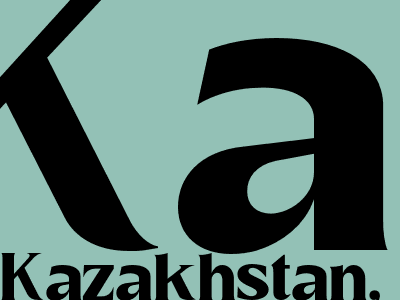
Kazakhstan's Water Resources: A Reservoir of Challenges and Opportunities
Water Scarcity: A Looming Threat
Kazakhstan, the world's ninth-largest country, faces a growing water crisis. With limited access to major water sources and a semi-arid climate, the country's water resources are under immense strain.
The Aral Sea, once one of the world's largest freshwater lakes, has shrunk to a mere fraction of its former size due to excessive water diversion for irrigation. This environmental catastrophe has left millions of people without access to clean water.
Dependence on Transboundary Waters
Kazakhstan relies heavily on transboundary rivers, such as the Syr Darya and the Ural River, for its water supply. However, these rivers are shared with neighboring countries, leading to complex water management challenges and potential conflicts.
Negotiating water rights and ensuring fair distribution is crucial for maintaining regional stability and cooperation.
Reservoirs: A Lifeline for Water Security
Recognizing the importance of water storage, Kazakhstan has invested in constructing reservoirs to capture and store water for drinking, irrigation, and hydropower generation.
The Bukhtarma Reservoir, located on the Irtysh River, is one of the largest reservoirs in Kazakhstan. It provides water for irrigation in the dry steppes of Eastern Kazakhstan and generates electricity for the country's national grid.
Challenges of Reservoir Management
While reservoirs offer a solution to water scarcity, they also pose challenges. Sedimentation, evaporation, and pollution can reduce the storage capacity and lifespan of reservoirs.
Effective reservoir management practices, including regular dredging and monitoring, are essential to ensure their long-term sustainability.
Innovative Water Management Strategies
To address its water challenges, Kazakhstan is exploring innovative water management strategies.
- Drip irrigation: This efficient irrigation method reduces water consumption and increases crop yields.
- Water conservation campaigns: Public awareness campaigns encourage responsible water use and promote water-saving technologies.
- Desalination: Kazakhstan has a vast coastline along the Caspian Sea, offering potential for desalination plants to provide additional freshwater sources.
Conclusion
Kazakhstan's water resources are a precious lifeline for its people and economy. The country's water scarcity challenges are compounded by its reliance on transboundary rivers and the need to manage reservoirs effectively.
By investing in innovation, promoting water conservation, and seeking cooperative solutions with neighboring countries, Kazakhstan can safeguard its water resources and ensure a sustainable future for its population.